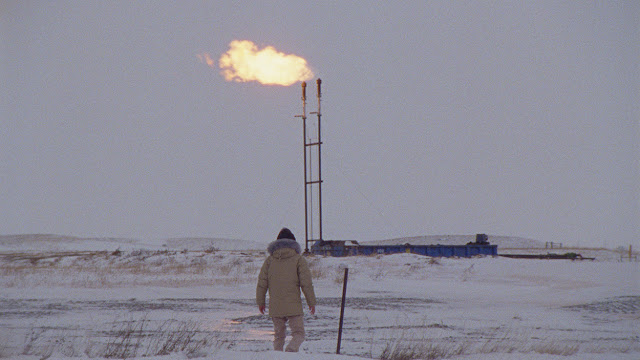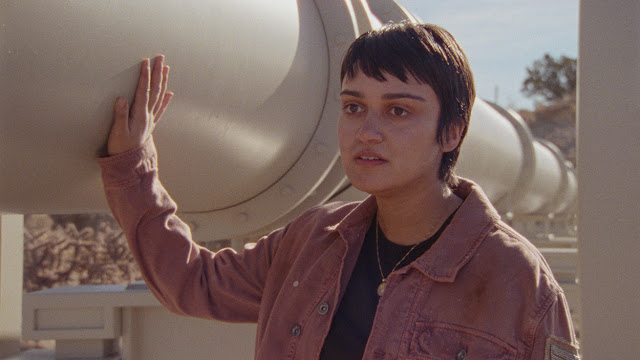When a filmmaker sets out to make a movie with a specific political message, all too often the result plays didactic, blunt, and heavy handed, practically screaming, “This is our movie, this is our message!” from the rooftops. It can be off-putting, even if you share the same viewpoint—most people don’t watch movies to be lectured one way or another. Cam director Daniel Goldhaber’s How to Blow Up a Pipeline is certainly a movie with something to say.
While by no means subtle or restrained—you’re not going to miss the point, you couldn’t if you tried—it largely manages to couch the message in its characters and their lives, utilizing an array of individuals that are as complex and varied as the issue that drives them. While it doesn’t entirely avoid clubbing you over the head, it handles the ideas with a more deft, delicate touch than many other like-minded movies.
[Related Reading: 'Night Moves' Movie Review]
As the title implies, How to Blow Up a Pipeline is in fact about blowing up an oil pipeline. Based on the nonfiction book of the same name by Andreas Malm, the film uses a fictionalized narrative to give shape and form to the ideas of direct action in the face of climate catastrophe espoused in that work.
Anyone who has ever worked in any sort of political organizing will recognize many of the characters, their archetypes, and motivations. There’s Shawn (Marcus Scribner), an idealistic college kid moved to action by data and doom-scrolling; Xochitl (Ariela Barer) and Theo (Sasha Lane), who grew up in a refinery town and both must contend with the health-related consequences; and Alisha (Jayme Lawson), who has a more personal, less overtly political agenda. Dwayne (Jake Weary) represents a counterpoint to the others. While they all come from various left-leaning stances, he’s very much a gun-toting, pickup-driving country boy, though one forced off his family land and poisoned by the oil companies. Similarly, Michael (Forrest Goodluck), a young Indigenous man, has watched the same companies decimate his North Dakota reservation home. Then there are also Rowan (Kristine Froseth) and Logan (Lukas Gage), wild cards who represent a very particular facet so often a part of this type of action. IYKYK.
[Related Reading: 'Daniel Isn't Real' Movie Review]
The script, from Goldhaber, Barer, and Jordan Sjol, unfolds in two distinct ways. There’s the present, where they have come together to execute their plan to blow up a Texas pipeline. That throughline carries the momentum as the film dips back in time to introduce each character, their individual journeys, and shows how this disparate band came together for this singular goal. It’s a mosaic not a monolith.
It’s an intricate weaving of backgrounds and aims—for some it’s deeply personal, a sense of outrage and justice drive others, some are moved by love, anger, desperation; it runs the gamut. And How to Blow Up a Pipeline makes you feel all of this, which is the film’s greatest strength. Goldhaber and company focuses more on the people involved than blunt sloganeering, putting a personal face on a massive problem and using them to push their climate justice agenda.
[Related Reading: 'Blood Quantum' Trailer]
Urgent, angry, and pressing from the jump, more than just a political screed, mechanically How to Blow Up a Pipeline is a propulsive ticking-clock pot-boiler, a character-driven eco-thriller. At times it unfolds almost like a heist movie. Structurally and in the way it doles out information, it’s reminiscent of the Ocean’s movies, though wildly different in tone and tenor. Still, the construction and execution make this a propulsive watch regardless of if you’re rooting for the characters or not. (It might make a nice triple-feature with similar direct-action-oriented movies The East and Night Moves.) [Grade: A]





No comments:
Post a Comment